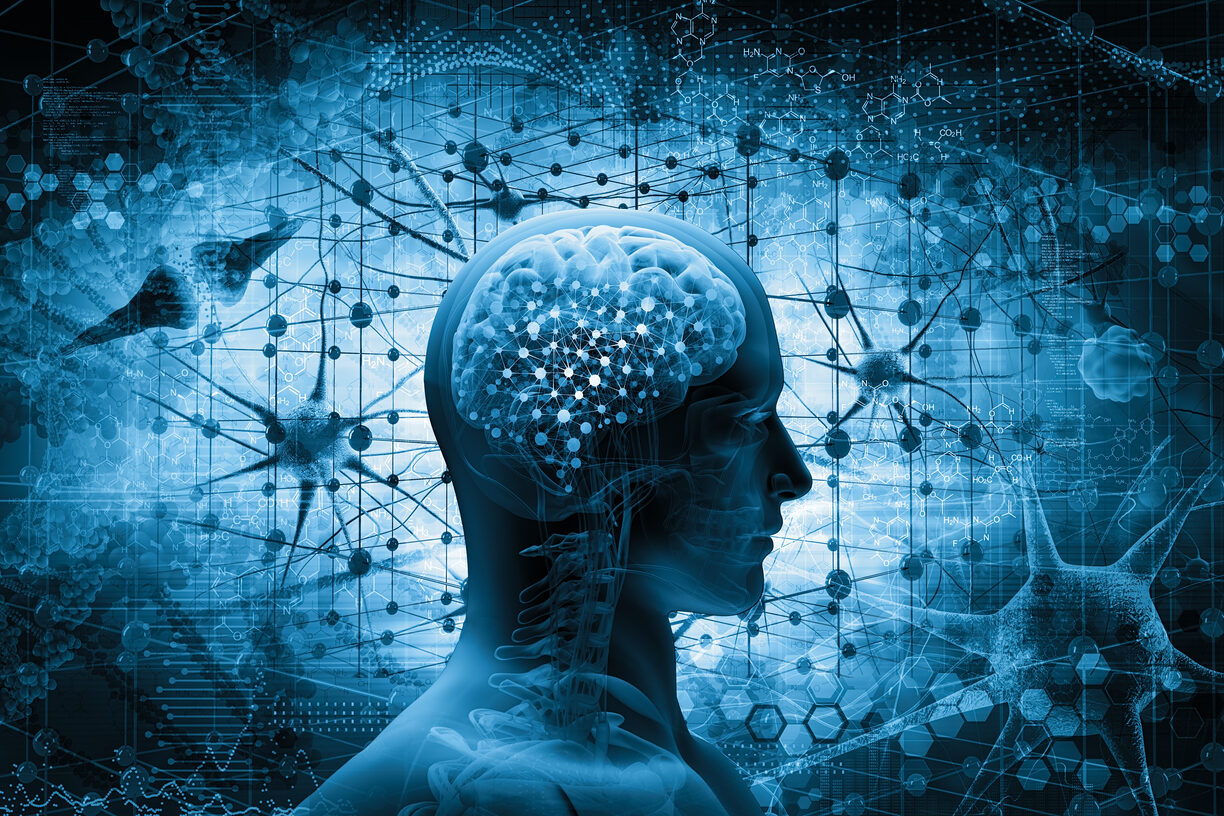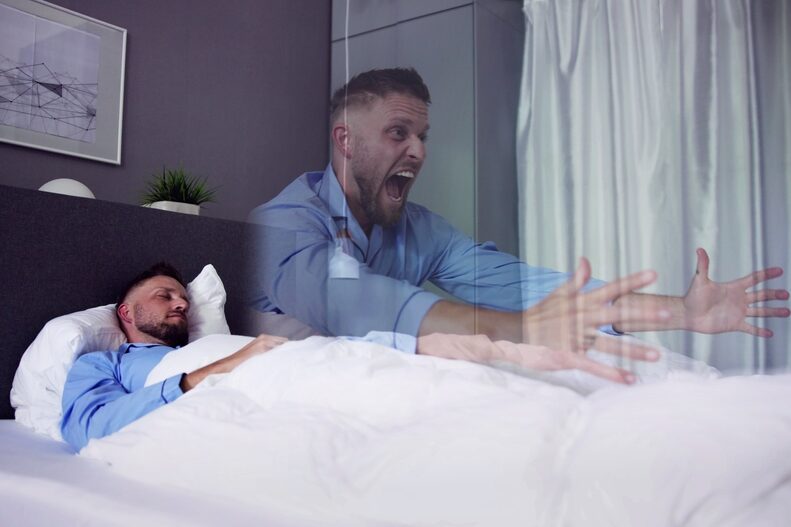1. Dolphins Sleep with Only Half Their Brain at a Time

Imagine being able to sleep and stay alert at the same time. That’s exactly what dolphins do! Instead of shutting down completely like humans, they practice something called unihemispheric slow-wave sleep. This means that while one half of their brain is in deep rest, the other half stays awake to keep them swimming, breathing, and aware of their surroundings. This is an incredible survival adaptation that allows them to avoid predators and navigate the ocean without stopping. Unlike humans, who rely on unconscious breathing during sleep, dolphins have to actively think about each breath they take. If they fully lost consciousness, they could drown.
This type of sleep also allows them to remain somewhat social, even while resting. Dolphins in groups will often take turns sleeping so that there’s always at least one of them watching for danger. It’s a system that ensures their safety without requiring them to find a secure place to rest. Scientists have even observed dolphins maintaining slow, rhythmic movements while asleep, suggesting that their bodies can function almost automatically while one side of the brain rests. If you’ve ever had a night where you felt like you barely shut off your brain, maybe you’re sleeping more like a dolphin than you realize!
2. Humans Are the Only Mammals That Delay Sleep on Purpose

Ever felt exhausted but still scrolled through your phone for another hour instead of going to bed? That’s a uniquely human behavior. Unlike other mammals that instinctively follow their sleep cycles, humans intentionally delay rest for entertainment, work, or socializing. It’s something that has only become worse in modern society, with artificial lighting, digital screens, and endless distractions keeping us awake long past when our bodies are naturally ready to shut down. This behavior, often called “revenge bedtime procrastination,” happens when people sacrifice sleep as a way to reclaim personal time they didn’t get during the day.
In the animal kingdom, sleep is non-negotiable. Most mammals follow a strict routine based on their internal biological clocks. Even nocturnal animals, which are active at night, still follow a consistent rest schedule. But humans override their natural signals with caffeine, bright lights, and sheer willpower. The problem? Chronic sleep deprivation leads to long-term health issues, including memory loss, weakened immunity, and increased stress. So while it might feel like you’re in control of your schedule, your body will eventually demand the rest it needs—whether you like it or not.
3. Your Brain Cleans Itself While You Sleep

Think of sleep as your brain’s overnight cleaning crew. During the day, your brain builds up toxins and waste products as a result of all the thinking, learning, and processing it does. But when you fall asleep, a special cleaning system called the glymphatic system kicks in. This process helps flush out harmful waste, including proteins linked to neurodegenerative diseases like Alzheimer’s. It’s like your brain gets a deep cleanse every night, ensuring that you wake up feeling mentally refreshed and ready to take on a new day.
If you don’t get enough sleep, though, this cleaning process doesn’t work as efficiently. That’s why sleep deprivation often leads to brain fog, memory problems, and trouble concentrating. Over time, if these toxins continue to build up, they may contribute to more serious cognitive decline. This is one of the reasons why good sleep hygiene is so important. It’s not just about feeling rested—it’s about giving your brain the chance to function at its best for years to come.
4. Some People Experience Exploding Head Syndrome

It sounds terrifying, but exploding head syndrome isn’t actually dangerous. It’s a sleep disorder where people hear loud, sudden noises—like a bomb going off, a gunshot, or a cymbal crash—right as they’re falling asleep or waking up. These noises aren’t real, but they feel completely authentic to the person experiencing them. Scientists believe this happens because the brain misfires while shutting down for sleep, triggering a sudden burst of neural activity instead of a smooth transition into rest.
Though it’s harmless, exploding head syndrome can be incredibly unsettling. People who experience it often feel startled or anxious afterward, making it harder to fall back asleep. Some even worry they’re experiencing a medical emergency. While stress and sleep deprivation can make it worse, there’s no known cure—just reassurance that it’s not a sign of anything serious. If you’ve ever had a jarring, unexplained noise wake you up at night, you might have experienced this strange sleep phenomenon without even realizing it.
5. Some People Can Lucid Dream and Control Their Dreams

Ever had a dream where you suddenly realized you were dreaming? That’s called lucid dreaming, and some people can take it a step further by controlling what happens. Instead of just passively experiencing their dreams, lucid dreamers can make decisions, interact with dream characters, and even change the scenery. Scientists believe this happens when parts of the brain responsible for logic and decision-making stay more active during sleep than usual. It’s like being in a movie where you’re the director, actor, and screenwriter all at once.
Lucid dreaming isn’t just fun—it has practical benefits too. Some people use it to practice skills, confront fears, or even solve problems. There’s evidence that athletes can improve their performance by visualizing techniques in their dreams. Others use it to work through anxieties in a controlled environment. However, not everyone can lucid dream naturally, and it often requires practice. Techniques like reality checks, dream journaling, and meditation can help increase the chances of becoming aware in a dream. For those who master it, sleep becomes an adventure rather than just a time to rest.
6. Sleep Paralysis Can Feel Like a Real-Life Nightmare

Imagine waking up but being completely unable to move or speak. Then, as if that wasn’t terrifying enough, you feel a heavy presence in the room—sometimes even sitting on your chest. That’s sleep paralysis, a condition where the body remains in a sleep-like state even after the mind becomes alert. It happens when the brain doesn’t properly transition between sleep stages, leaving a person temporarily trapped between dreaming and waking. Since the body is still paralyzed as it would be during REM sleep, people experience a sensation of being frozen in place.
What makes sleep paralysis even more unsettling is the hallucinations that often come with it. Many people report seeing shadowy figures, feeling pressure on their chest, or sensing an evil presence nearby. These experiences have led to countless folklore stories about demons, ghosts, and even alien abductions. While sleep paralysis is harmless, it can be deeply disturbing. It’s more likely to happen when someone is sleep-deprived, stressed, or sleeping in an unfamiliar position. Though there’s no guaranteed way to prevent it, maintaining good sleep habits can reduce the chances of experiencing this eerie phenomenon.
7. Animals Have Wildly Different Sleep Patterns from Humans

If you think your sleep schedule is weird, wait until you hear how animals do it. Giraffes, for example, only sleep about 30 minutes a day, and they do it in short bursts to avoid predators. Meanwhile, koalas spend up to 22 hours a day sleeping, making them one of the laziest sleepers in the animal kingdom. Then there are animals like otters, which hold hands while they sleep to keep from drifting apart in the water. The animal world is full of bizarre and fascinating sleep habits.
Some animals even experience sleep in ways that seem completely unnatural to humans. Birds, for example, can sleep while flying by shutting off half their brain at a time, similar to dolphins. Some migratory species go months with only tiny moments of rest while soaring through the sky. Sharks, depending on the species, can either sleep while moving or rest completely still. Meanwhile, certain frogs can freeze solid in the winter, stopping their bodily functions entirely, only to wake up in the spring as if nothing happened. If human sleep worked anything like that, we’d never need an alarm clock again.


